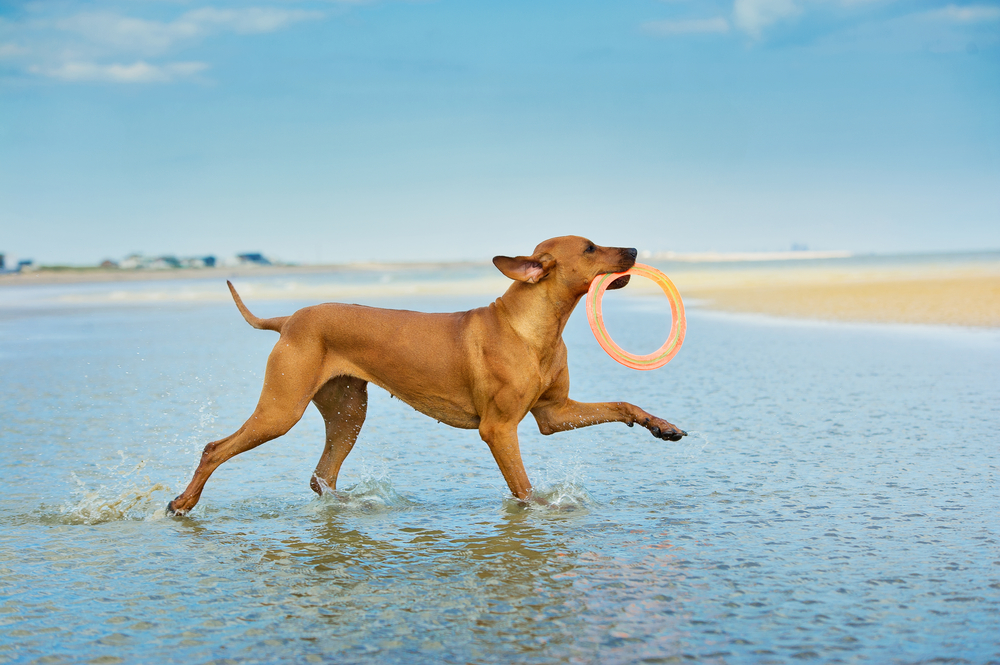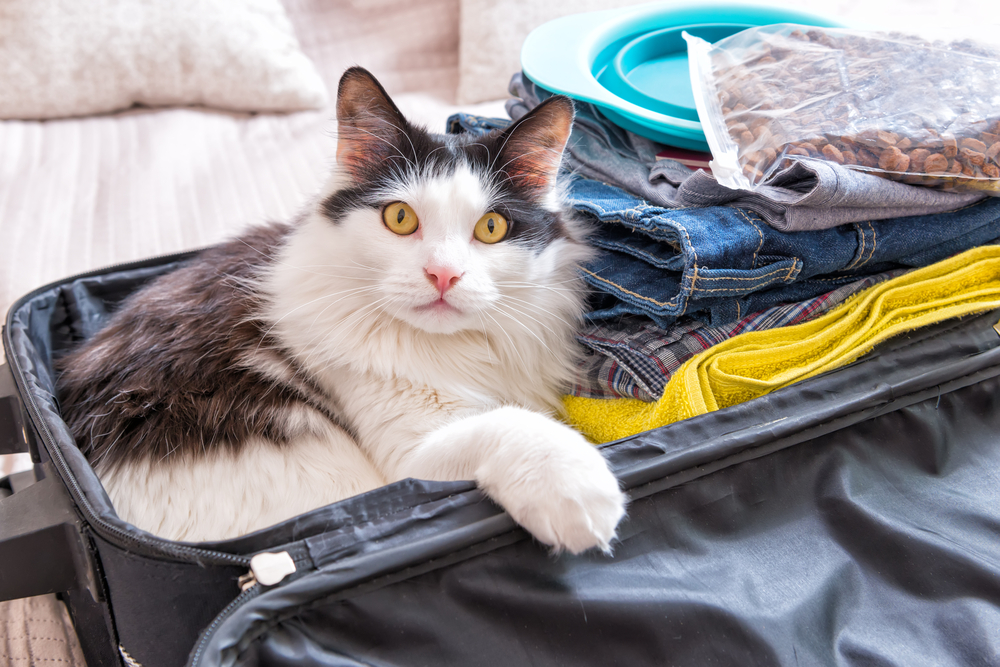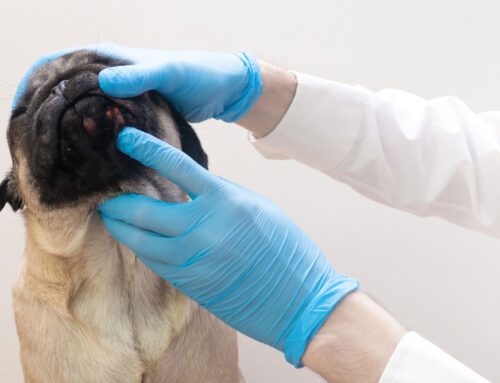As a devoted pet owner, you’re likely well aware that your home contains many toxic dangers to your pet—chocolate, antifreeze, and human medications, to name a few. You may know the most common dangers hidden in your home, but you may not be quite as familiar with ones you could experience while traveling with your pet. Knowledge is key to protecting your pet from potential poisons, and appropriately preparing to avoid hazards. Keep your furry pal safe from harm by studying possible toxins—some obvious and some obscure.
#1: Car air fresheners and pets
Many pet owners attempt to cover up their vehicle’s funky odors with air fresheners. If you’re in the habit of taking your dog to the beach, or hiking through muddy, wooded trails, or if your pup is prone to motion sickness, you likely have an air freshener in your car to combat the wet dog odor. Most air fresheners contain ingredients called volatile organic compounds, or VOCs, which are chemicals that easily evaporate from a solid or a liquid to form in the air. VOCs are also found in formaldehyde, paint, fossil fuels, cigarette smoke, and aerosols, and can lead to serious health issues, including:
- Eye, nose, and throat irritation
- Loss of coordination
- Nausea
- Damage to the liver, kidneys, and central nervous systems
- Cancer
If you’ve walked into a room after someone has heavily sprayed an air freshener, you’ve probably experienced the same burning eyes and lungs your pet feels when riding in your car that’s swimming with fragrance. Essential oils are no safer for pets, either. In fact, many oils can be hazardous—or deadly—for your pet, especially for highly sensitive cats. If your curious pup decides to eat your scented tree dangling from your rearview mirror, or a fresh-smelling plug-in, he may display serious side effects, including vomiting, diarrhea, agitation, weakness, unsteadiness, and tremors. Cats have also developed feline asthma from continuous exposure to air freshening products. To keep your pet—and yourself—safe from VOCs, stick with rolling down the windows to air out your car. Your dog will love it, and you’ll both be much healthier.
#2: Mothballs
If mice or squirrels have chewed your vehicle’s wires, you may have resorted to stashing mothballs in your car, to deter these sharp-toothed rodents from their nibbling, but mothballs can pose a threat to your pet. Inhalation of mothball vapors causes headaches, respiratory distress, and eye irritation. Ingestion creates a toxicity effect, leading to liver damage, respiratory failure, seizures, heart arrhythmias, and potentially death. When your pet takes a ride in your vehicle, ensure she can’t reach the mothballs—better yet, remove them when you’re in the car.
#3: Snacks
What’s a road trip without snacks? However, many goodies you pick up at the gas station or grocery store can be toxic to your pet, so place the following items out of paws’ reach:
- Chocolate
- Macadamia nuts
- Avocados
- Apple cores
- Grapes and raisins
- Sugar-free gum and candy
Also, keep a close eye on small children hanging out in the backseat with your pet, as they’re likely to share their treats with their furry pal. Chicken nuggets and french fries can also pose a threat to your pet with high fat levels, which can lead to potentially life-threatening pancreatitis. Once you’ve reached your destination, and are ready to kick back and relax with a cocktail or two, ensure you keep the liquor out of reach of all children—two-legged or four.
#4: Petroleum products
Pets can have severe reactions to petroleum products commonly found in your garage or vehicle. Petroleum hydrocarbon toxicosis can be caused by a variety of products, including:
- Gas, diesel, or other fuels
- Solvents (e.g., paint thinner)
- Lubricants (e.g., motor oil)
- Waxes
- Pesticides
- Paints
While pets most commonly develop petroleum hydrocarbon toxicosis from leaks or spills, skin contact and vapor inhalation can also be harmful. If your pet inhales products like turpentine or gasoline, she can develop chemical pneumonitis, a condition in which the chemical coats the lungs, causing inflammation and trouble breathing.
#5: Sunscreen
As you plan to soak up some scorching rays on your beach vacation, you likely packed plenty of sunscreen, to keep your skin from frying to a crisp. While your pet probably won’t suffer from any side effects if she licks you after sunscreen application, a large amount of sunscreen ingested can cause trouble. The most common signs associated with sunscreen toxicity are related to gastrointestinal distress, such as diarrhea, bloody vomit, and dehydration, but allergic reactions with facial swelling and itching, along with seizures and gastric ulcers, can occur—albeit rarely. If your pup is enjoying a day at the beach with you, keep your sunscreen away from her inquisitive nose.
#6: Medications
Did you know that your vacation suitcase is probably packed full of potential hazards for your pet—namely medications? Human prescription and over-the-counter medications can create serious, life-threatening problems for your furry pal, if she eats a bottle of heart medication, anti-anxiety medication, or nonsteroidal anti-inflammatories. If you’re not actively supervising your pet, keep your suitcase securely latched, and out of reach.
Contact us before giving your pet any human medications. If your pooch is limping after romping in the waves all day, don’t reach for the Tylenol—call us instead.
#7: Water conditions

Although not everyone travels to warmer climates for vacation, many people tend to migrate toward sun and surf, which can pose a threat to your pet if she enjoys a swim. Watch out for the following water toxicities when heading to the ocean or lake:
- Salt water — If your pooch loves frolicking in salty ocean waves, she may ingest a large amount of salt water in a short time, leading to vomiting, excessive thirst, ataxia, depression, tremors, and seizures.
- Red tide — Red-brown algal blooms in the Mexico and California gulfs can irritate your pet’s eyes and respiratory tract, and cause gastroenteritis, disorientation, and ataxia. On the northern Atlantic and Pacific coasts, shellfish contaminated by red-tide organisms can cause paralysis, ataxia, and an increased heart rate, if your pet consumes them.
Are you worried that your pet may have come in contact with a toxin? Contact an animal poison control hotline, and then head to our hospital for immediate treatment—but give us a warning call first.







Leave A Comment